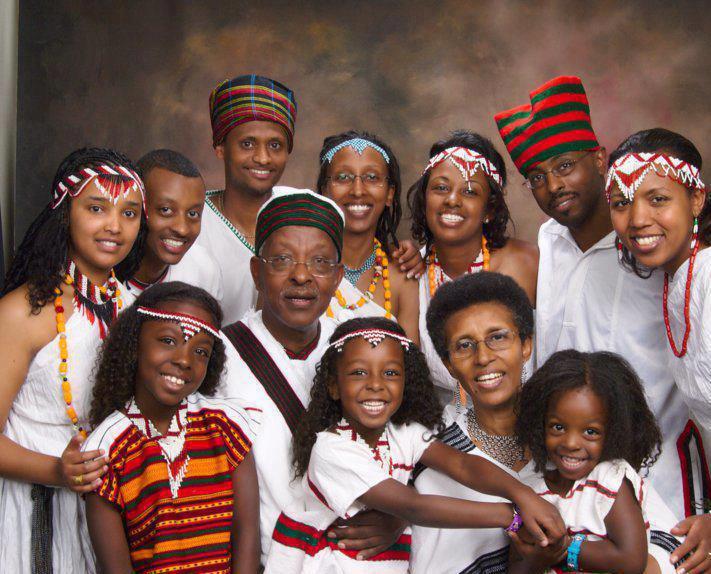
Did you know that the Oromo people are the largest ethnic group in Ethiopia, comprising around 35% of the nation’s population? This vibrant and diverse community has a rich cultural heritage that spans centuries, with unique traditions, language, and social systems that continue to thrive today. The Oromo are not only significant in numbers but also in their profound cultural, social, and political impact on Ethiopia.
The Oromo’s Historical Roots
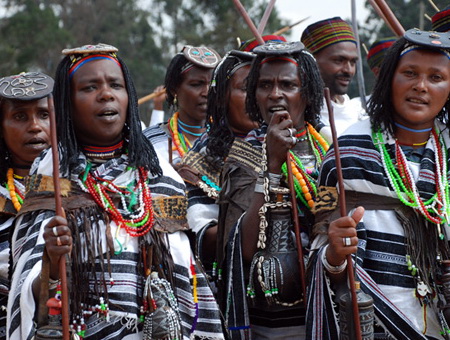
The Oromo trace their origins to the Cushitic-speaking peoples of East Africa. Historically, they have lived in various regions across Ethiopia, Kenya, and Somalia. The Oromo migration and expansion throughout the Horn of Africa in the 16th century significantly shaped the region’s demographic and cultural landscape. During this period, the Oromo established themselves as a formidable force, adapting to various environments and assimilating diverse influences, which enriched their cultural tapestry.
Read: Iwu, the Ancient Body Markings of the Edo Tribe
Language and Society
The Oromo people speak Afaan Oromo, one of the most widely spoken Cushitic languages. It is an official language used in education, media, and government in Ethiopia. The Oromo language is integral to their identity, fostering a sense of unity and continuity among them.
Oromo society is traditionally organised into a unique socio-political system known as the Gadaa system. This indigenous democratic system divides society into age sets and governs the community through elected leaders and structured cycles of leadership. The Gadaa system is a remarkable example of Indigenous African governance, emphasising egalitarian principles, accountability, and the rule of law.
The Cultural Heritage of the Oromo People
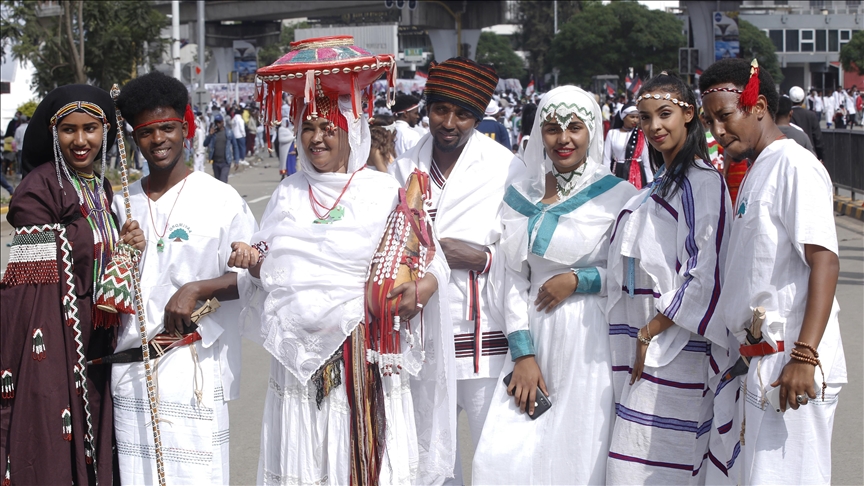
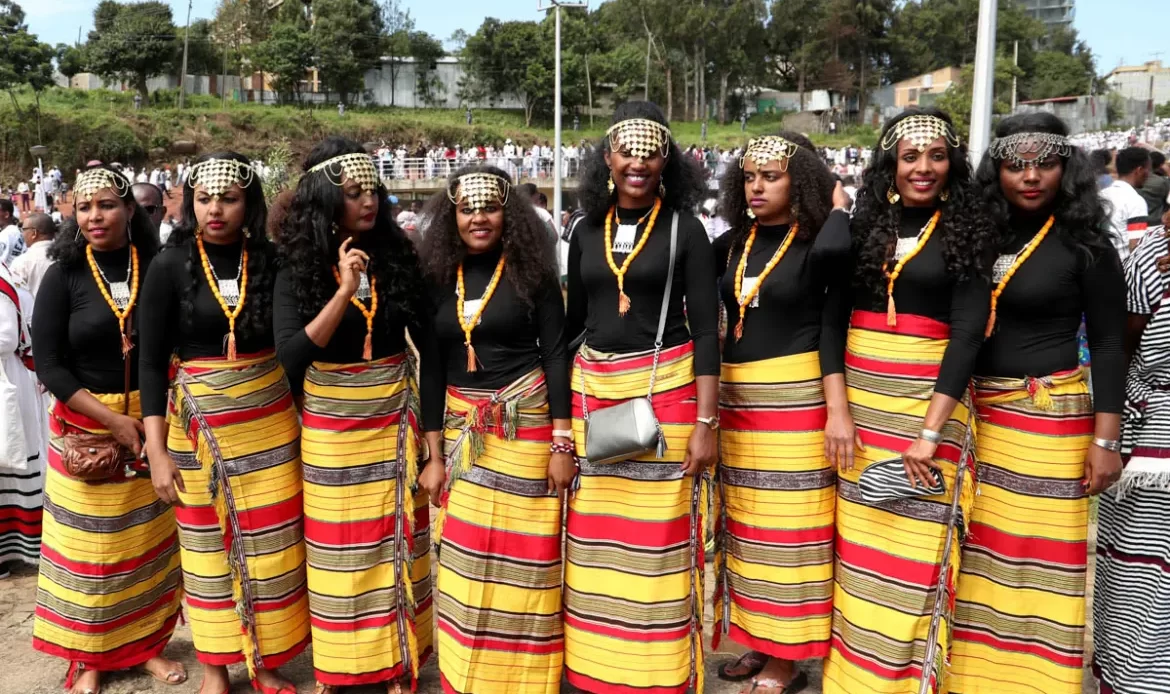
Oromo culture is rich with music, dance, and oral traditions. They celebrate numerous festivals, such as Irreecha, a thanksgiving ceremony to honour Waaqa (God). Irreecha is marked by colourful processions, songs, and dances, reflecting the Oromo’s deep connection to nature and spirituality.
Music and dance are central to Oromo cultural expression. Traditional Oromo music, with its distinctive rhythms and melodies, often features instruments like the krar (a lyre) and the masenqo (a one-stringed fiddle). Oral poetry, rich with proverbs, folklore, and historical narratives, preserves the community’s collective memory and remains a vital part of the Oromo cultural heritage.
Read: African Crafts: From Beadwork to Woodcarving
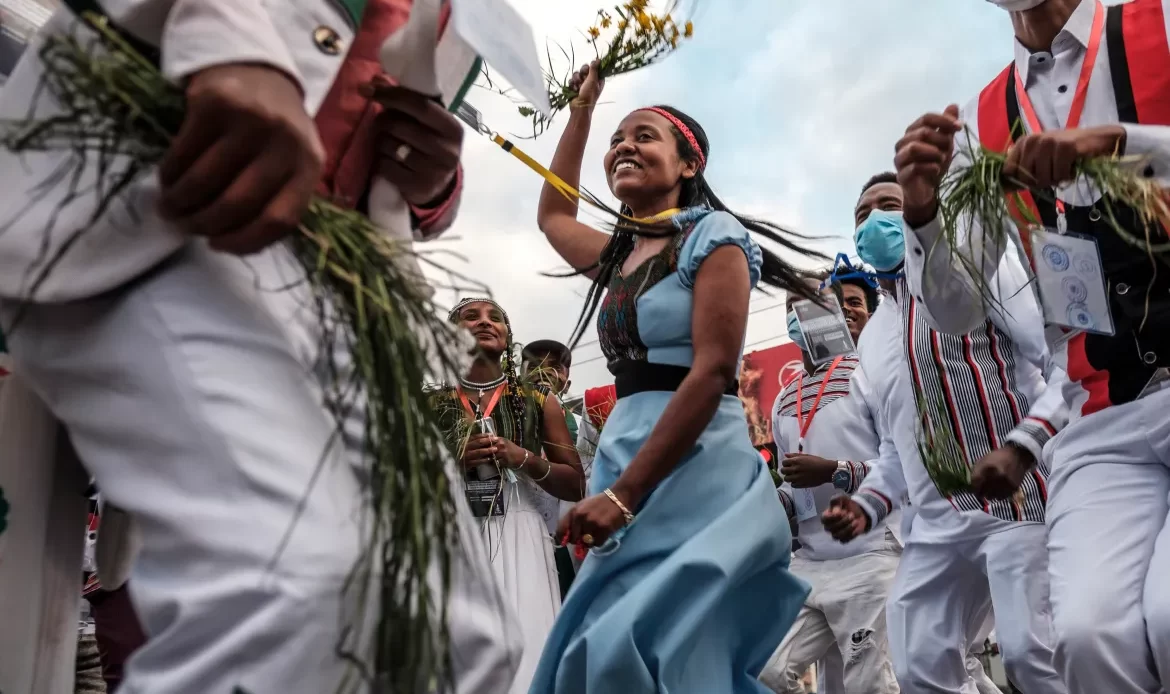
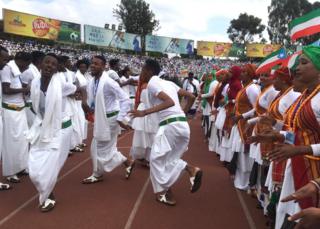
Contemporary Significance
Today, the Oromo people play a vital role in Ethiopia’s political, economic, and social spheres. Their quest for recognition and rights has been a significant aspect of Ethiopia’s modern history. The Oromo Liberation Front (OLF) is a prominent organisation advocating for the rights and autonomy of the Oromo people in Ethiopia. The Oromo People’s Democratic Organization (OPDO) is another key political party representing Oromo interests.
In recent years, the Oromo have increasingly sought greater political representation and cultural recognition. This has led to significant political movements and, at times, tensions within Ethiopia. However, the Oromo’s contributions to the nation’s cultural, economic, and political life remain indispensable.
Creativity in Oromo Arts
Oromo arts are an integral part of their cultural identity. Traditional Oromo music, with its distinctive rhythms and melodies, often features instruments like the krar (a lyre) and the masenqo (a one-stringed fiddle). Oromo literature, particularly oral poetry, is rich with proverbs, folklore, and historical narratives that preserve the community’s collective memory.
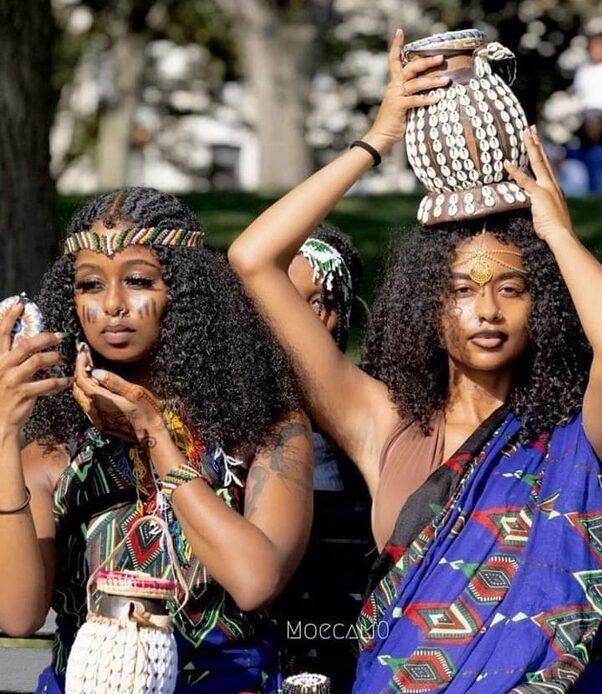
Oromo art is not limited to music and literature. Visual arts, including traditional dress and jewellery, reflect the Oromo’s rich cultural heritage. Intricate patterns and vibrant colours characterise Oromo textiles, while their jewellery often features symbolic designs that convey social status and cultural identity.
Read: Indigenous Musical Instruments Across Major Tribes in Nigeria
The Oromo in Modern Ethiopia
In contemporary Ethiopia, the Oromo community advocates for greater cultural and political recognition. The Oromo People’s Democratic Organization (OPDO) is one of the key political parties representing Oromo interests. The community’s vibrant cultural expressions and active participation in national affairs underscore their significant role in shaping Ethiopia’s future.
The Oromo’s influence extends beyond politics. Oromo individuals have significantly contributed to Ethiopia’s development in business, education, and the arts. Their entrepreneurial spirit and commitment to education have fostered economic growth and social progress within Oromo communities and beyond.
The Oromo people, with their rich cultural heritage and enduring traditions, are a cornerstone of Ethiopia’s diverse social fabric. Their contributions to the nation’s cultural, political, and social life are profound and ongoing. As Ethiopia continues to evolve, the Oromo’s unique identity and cultural heritage remain a vital and celebrated part of the country’s tapestry.
Explore more about vibrant African cultures and their rich heritage. Immerse yourself in their music, literature, and traditions to gain a deeper appreciation of these unique cultures.
